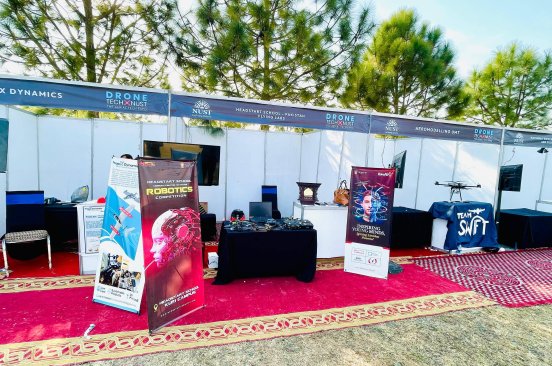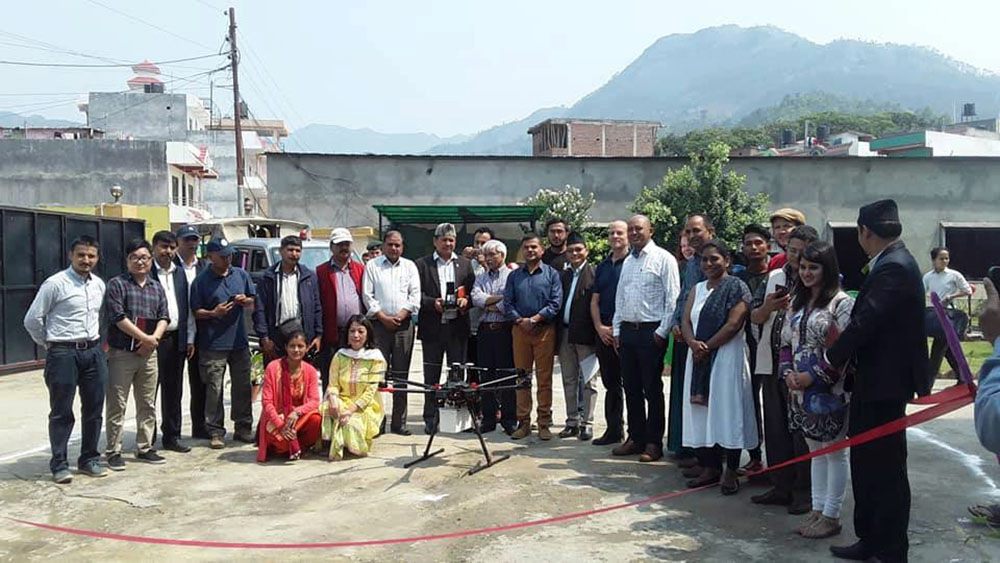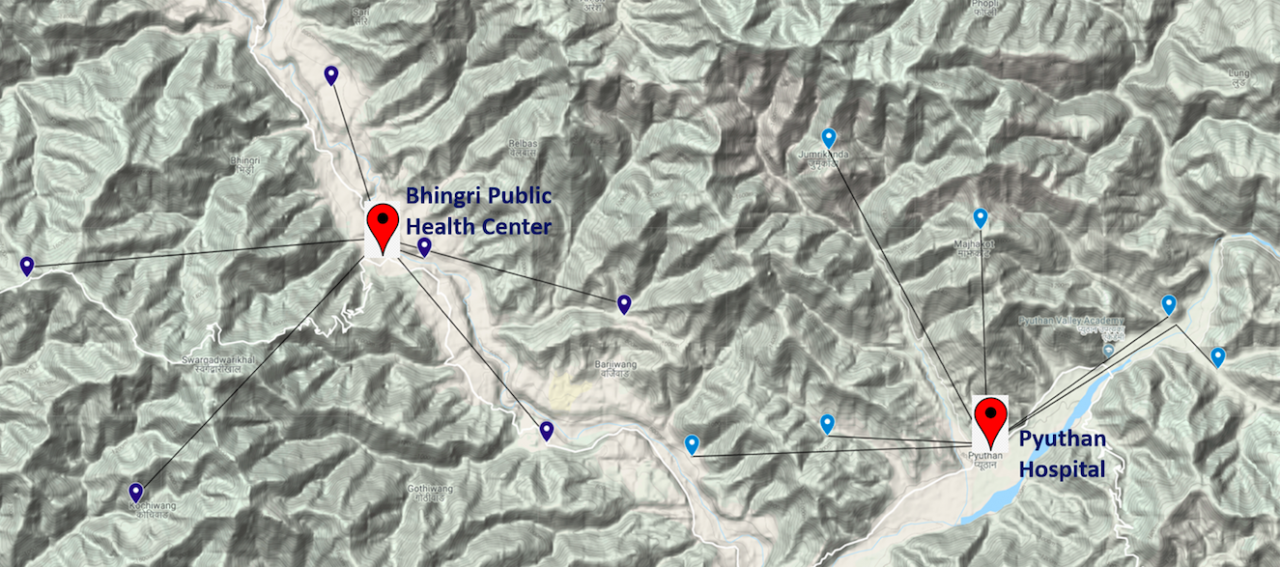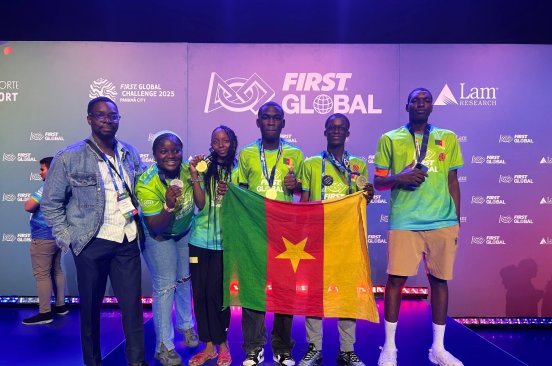
How Locally Led Cargo Drone Deliveries in Nepal Can Improve Health Outcomes
Our approach to cargo drones: we transfer knowledge and technology to local experts and help them grow their drone businesses to include cargo drone services.
October 9th, 2019
NEW! The full 60+ page progress report on this cargo drone project is now available here (PDF). Partners carried out 6 months of locally-led cargo drone deliveries, collecting 700+ patient samples from 8 clinics to 2 regional hospitals for rapid TB testing.
More than 80 percent of Nepal’s population lives in rural areas, and 50 percent live in remote, mountainous regions with poor access to healthcare. The majority of healthcare facilities in the country are not accessible by roads. On average, it takes six-to-eight hours to travel between a hospital and healthcare facility in rural Nepal. This leads to shortages of essential medicines and explains why it can take so long to test patients for diseases like tuberculosis (TB) since patient samples can only be tested at diagnostic labs in major cities. Some 70 percent of Nepalis are carriers of TB, and many of them have full-blown versions of the disease. TB is the 4th leading cause of death in Nepal and the leading cause of death from infectious diseases.

WeRobotics and Nepal Flying Labs, therefore, teamed up with Stony Brook University, Birat Nepal Medical Trust (BNMT), the Liverpool School of Tropical Medicine, the Ministry of Health and Population (MoHP Nepal), the National TB Center, the District Public Health Office (DPHO Pyuthan), the Simons Foundation, and DroNepal to bring our expertise in cargo drones to their important public health work. BNMT is a pioneer in TB research and active case finding projects in Nepal and has been working in partnership with national and international partner agencies for 50 years. BNMT is handling all the public healthcare aspects of the project.
Stony Brook University is behind the Drone Optimized Therapy System (DrOTS), which aims to improve the accessibility of TB diagnostic tests by linking community health workers (CHWs) with state-of-the-art diagnostic tools (GeneXpert) via drone. Under this system, the drone collects sputum samples from remote healthcare facilities and delivers them directly to the central hospital or lab. Healthcare personnel at the hospital then test the sputum sample using the GeneXpert diagnostic tool.

Drone-assisted sputum sample collection is now operational in eight of twelve health posts in Pyuthan and Sworgadwari municipalities of Pyuthan district. To date, over 150 drone flights have been carried out, delivering more than 1,000 sputum samples from eight remote health facilities, and delivered directly to two regional hospitals for rapid testing.
The purpose of this project is to assist the Ministry of Health and Population and the National Tuberculosis Center by generating the data necessary to assess the suitability of the approach for nationwide expansion. More specifically, the main objectives of the projects are to:
- Establish a locally-led “on-demand” drone service in the mountainous/hilly area using locally operated and affordable cargo drones. Central to our work is the availability of a drone service that includes an appropriately equipped and staffed "droneport" and a cadre of community health workers who are able to: request a drone when appropriate, manage the drone and related technology upon arrival, and launch the drone for its return flight.
- Remotely diagnose TB by training community health workers to recognize a person who is likely to have TB according to the norms of the National TB Program, to explain to them the need for testing, and to safely obtain quality sputum samples.
- Remotely observe TB therapy by combining conventional health provider interaction and innovative technologies to monitor patients over the six-month treatment for adverse drug reactions, ensure medication adherence and assess trends in symptoms.
- Directly educate and empower local partners to assume full ownership of the DrOTS program, so as to ensure its sustainability after the project ends.
- Generate evidence regarding the feasibility, acceptance, and cost-effectiveness of the DrOTS program, with a focus on informing an eventual scale-up of its services nationwide.
We are currently working on a detailed progress report with all our partners. In the meantime, we want to share a handful of our joint accomplishments thus far:
- According to the Nepali Times, community Health Worker Sita GC says the drones are god-sent because they can deliver samples in 25 minutes, where earlier it took two-to-three days. “Logistics was a huge problem because of unreliable transport; now it is easy to diagnose and treat quickly,” she adds.
- According to the Nepali Times, if the DrOTS program is successful, then the Ministry of Health seeks to replicate it for TB control in other remote areas.
- Secured formal support from more than 10 key government agencies and ministries.
- Received the first-ever Beyond Visual Line of Sight (BVLOS) permissions in Nepal for medical cargo drone deliveries.
- Repurposed the DJI M600 industrial drone into a reliable, affordable, locally operable and locally repairable cargo drone. This repurposed cargo drone is also being used by Dominican Republic Flying Labs. More on the solution here. For the price of a laptop, anyone can repurpose their M600 drone into a fully functioning cargo drone.
- Trained both Nepal Flying Labs and DroNepal to operate the cargo drone deliveries completely independently. To date, over 150 flights have been carried out and more than 1,000 patient samples have been collected from 8 health posts in rural villages and delivered directly to two central health facilities. Note that WeRobotics incubated DroNepal in 2017 as part of our Business Incubation Program, which co-creates locally owned and locally managed businesses that offer drones as service. Thanks to the DrOTS project, we’ve been able to expand Dronepal’s expertise from mapping drones to cargo drones.
- Organized multiple community engagement programs with local and national stakeholders to present the project and ask for their permission to operate the cargo drones in their airspace.
WeRobotics and Flying Labs have set up multiple cargo drone projects in Peru, Dominican Republic, Fiji, Papua New Guinea, Brazil and Nepal with outstanding public health organizations and companies. We also worked with VillageReach to set up a cargo drone project in the DRC. You can learn more about our Cargo Drone Code of Conduct here. Flying Labs are local knowledge hubs run entirely by local professionals who we train, equip and support as needed. Flying Labs are operating in more than 25 countries across Africa, Asia, and Latin America. We are lining up several new cargo drone projects with multiple Flying Labs and partners in 2020, including the Gates Foundation, World Health Organization (WHO) and the Center for Disease Control (CDC).
Our approach to cargo drones is simple: we transfer knowledge and technology to local experts and help them grow or incubate their local drone businesses to include cargo drone services. We believe this is the most ethical, respectful, sustainable and inclusive way to support local experts and decolonize technology for good. This is what we mean by "The Power of Local." We are very grateful to all our partners on the DrOTS project in Nepal for giving us the opportunity to work on such a meaningful and impactful project.
Category(s)
Location(s)
Recent Articles
View All »

Team Cameroon's Road to Victory at the First Global Robotics Competition 2025
